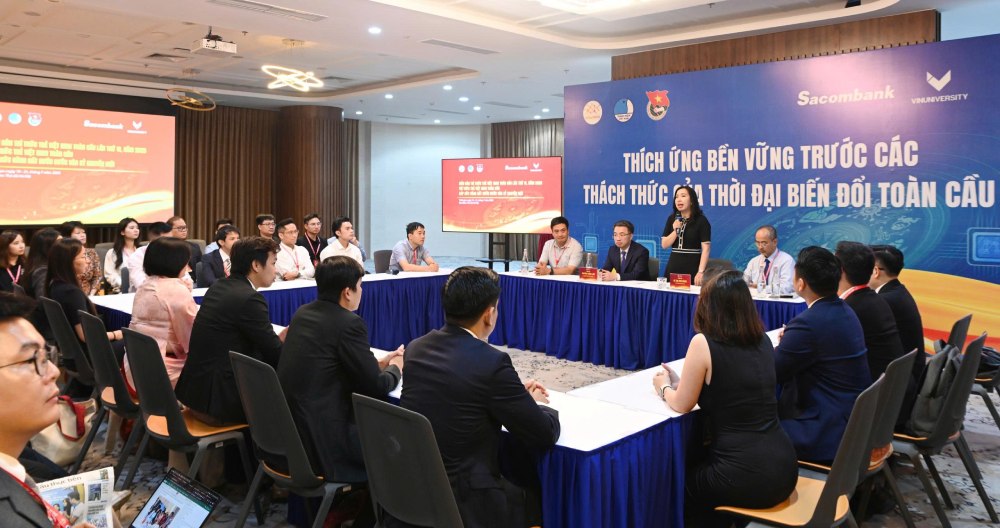Having a flexible financial autonomy and treatment mechanism
On July 19, the opening session of the 6th Vietnam Young intellectuals Global Forum in 2025 took place in Hanoi.
Within the framework of the Forum, Deputy Minister of Foreign Affairs Le Thi Thu Hang had an interview with young intellectuals at the seminar "Sustainable adaptation to the challenges of the era of global change".
In particular, the Deputy Minister of Foreign Affairs made important recommendations to pave the way for overseas Vietnamese intellectuals to return or make a distant contribution to the country's development.
These solutions not only demonstrate innovative thinking but also reflect the determination of the Government in taking advantage of overseas Vietnamese intellectual resources.

The first proposal of Deputy Minister Le Thi Thu Hang focuses on perfecting the legal framework, especially regulations related to nationality.
According to Deputy Minister Le Thi Thu Hang, the amended Law on Vietnamese nationality has brought about positive changes, allowing overseas Vietnamese to retain or restore Vietnamese nationality without violating the laws of the host country. On the other hand, the current naturalization registration process has been simplified, just submit the application at the Embassy, then transfer it directly to the Ministry of Justice with a clear processing deadline.
The second recommendation of Deputy Minister Le Thi Thu Hang emphasizes the importance of building a healthy working environment, fair competition based on capacity and contribution.
"Many overseas Vietnamese intellectuals, especially scientists, want to contribute to the country but face difficulties due to the lack of modern facilities and laboratories.
I propose strong investment in public universities, laboratory systems and research facilities. At the same time, there needs to be a flexible financial autonomy and treatment mechanism, without "salary ceiling" to attract talent" - Deputy Minister of Foreign Affairs Le Thi Thu Hang shared.
More importantly, according to Ms. Le Thi Thu Hang, it is to encourage no distinction between the public and private sectors, because both contribute to the common development of the country.
Providing specific problems and research topics
The Deputy Minister of Foreign Affairs also made a third recommendation that Government agencies, ministries and localities need to propose specific problems and research topics for Vietnamese intellectuals abroad to participate in.
Deputy Minister Hang emphasized that the general call for "returning to the country for contribution" will not be effective without specific projects.
To support the connection, she proposed building a database to collect information from overseas Vietnamese intellectuals, making it easier for them to send ideas, propose and participate in projects.
Vietnamese representative agencies abroad, such as embassies and consulates general, need to have a clear process to receive and handle these proposals.
At the forum, many young intellectuals expressed their desire to receive more specific support in terms of mechanisms and policies to have favorable conditions to contribute to the development of the country.
Dr. Dinh Vu Ngoc Cuong, a materials science researcher in Vietnam, proposed a quick mechanism to grant patents, helping initiatives to be implemented promptly.
Mr. Nguyen Phuoc Lap, lecturer at Can Tho University of Medicine and Pharmacy, emphasized the need for research support funds for young lecturers returning from abroad.
Meanwhile, Mr. Do Duc Ton, working in Kazakhstan, proposed recognizing equivalent academic titles and reducing complicated administrative procedures when cooperating in research with Vietnam.












